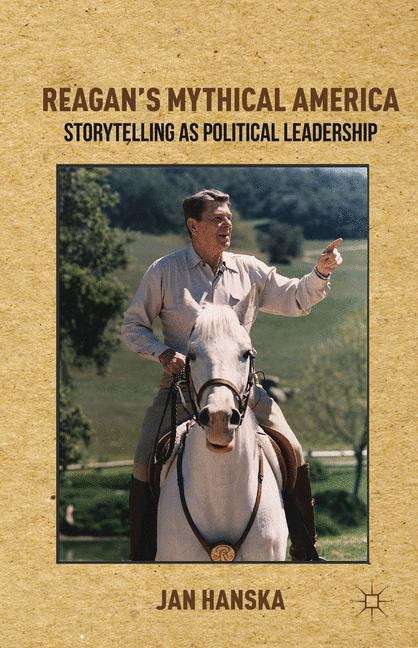Reagan’s Mythical America
By:
Sign Up Now!
Already a Member? Log In
You must be logged into Bookshare to access this title.
Learn about membership options,
or view our freely available titles.
- Synopsis
- American Storyverse introduces narratology as a relevant approach to the study of any US President, but especially Ronald Reagan. While initially much of the research conducted into the Reagan presidency was highly critical, many of the books written lately have been more like hagiographies. Reagan has been subjected to almost a worshipful attitude in the past two decades (see e. g. D'Souza 1997, Kengor 2006, Wallison 2003), and only recently more level-headed and objective studies have begun to emerge (see e. g. Wilentz 2008). There is a need to keep researching Reagan, but by taking new stances and original approaches. Hanska introduces a new interpretation of Reagan's success that goes beyond explaining his rhetoric. He takes a more comprehensive view by arguing that Reagan's political leadership focused on the use of stories as factual tools of policymaking. Reagan was a man fond of stories and his tendency to illustrate even the most confounding political challenges in short anecdotes and parables are an example of his ability as a storyteller. But that was not the whole scope of his narrative-based policies. The main argument is that with the aid of multiple stories about America, the American Way of Life and especially the American Dream Reagan narrated into existence a mythical America, which could be characterized as America where all its highest aspirations and ideals were manifested. This was not the world Americans lived in, but with aid of the ability of stories to create alternative realities or storyworlds (Herman 2004) of their own Reagan managed to alter the perception of people about the country they lived in. Instead of the mere storyworld that is built in the narrates interaction with the story Hanska introduce a concept of 'storyverse' to illustrate how such a complex and multifaceted storytelling as Reagan's was able to knit storylines into a 'storyweb' where common-sensical, ideological, cultural, political, mythical and even religious beliefs worked as snares to draw the audience into accepting one storyline and by following it deeper into the narrative superstructure were enticed to accept more and more beliefs without even consciously noticing their influence. Reagan's mythical America was not the United States of America that exists with clear boundaries on the map, but rather an imagined community that people were happy to inhabit. It was a place of everyday heroism and good deeds, love within families and communities, a land where indeed there always was a 'new morning for America. ' The skillful storytelling created an entire storyverse of belief of what it meant to be an American and a part of this mythical community and by maneuvering people in and out of different storyworlds within the entire metanarrative Reagan was able to immerse the citizenry in his storyverse and exclude politically disadvantageous factors almost completely. Of course, just as in every story, the audience needs to accept it as worth listening to, and this requires belief. This explains why Reagan was simultaneously loved and hated by the citizens. There was no middle ground. If one chose not to accept Reagan's political vision of America as fundamentally 'true, ' they were strongly opposed to all Reagan stood for.
- Copyright:
- 2012
Book Details
- Book Quality:
- Publisher Quality
- ISBN-13:
- 9781137273017
- Publisher:
- Palgrave Macmillan
- Date of Addition:
- 03/23/17
- Copyrighted By:
- Springer
- Adult content:
- No
- Language:
- English
- Has Image Descriptions:
- No
- Categories:
- Nonfiction, Biographies and Memoirs, Religion and Spirituality, Politics and Government
- Submitted By:
- Bookshare Staff
- Usage Restrictions:
- This is a copyrighted book.
Reviews
Other Books
- by Jan Hanska
- in Nonfiction
- in Biographies and Memoirs
- in Religion and Spirituality
- in Politics and Government
